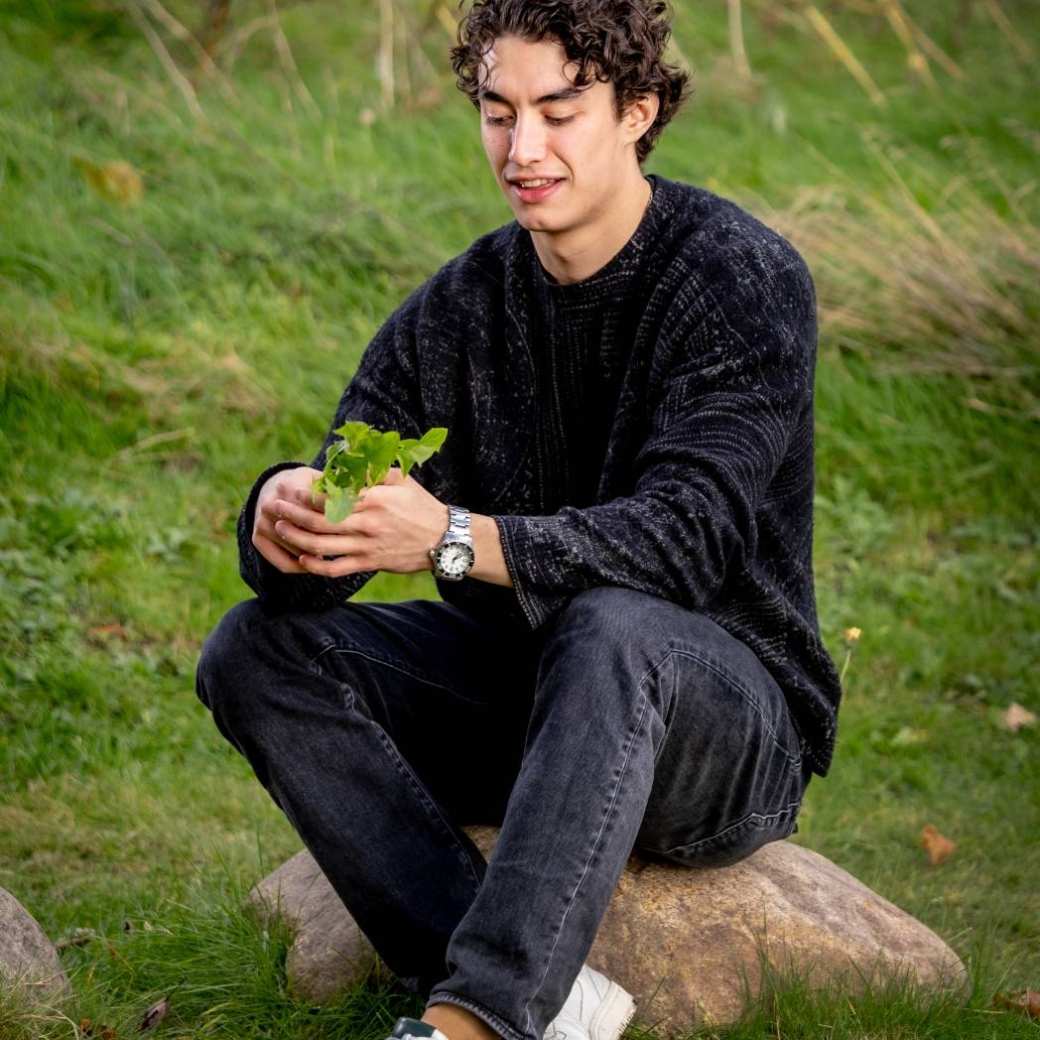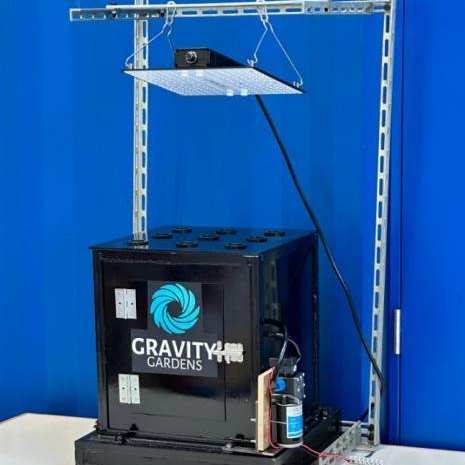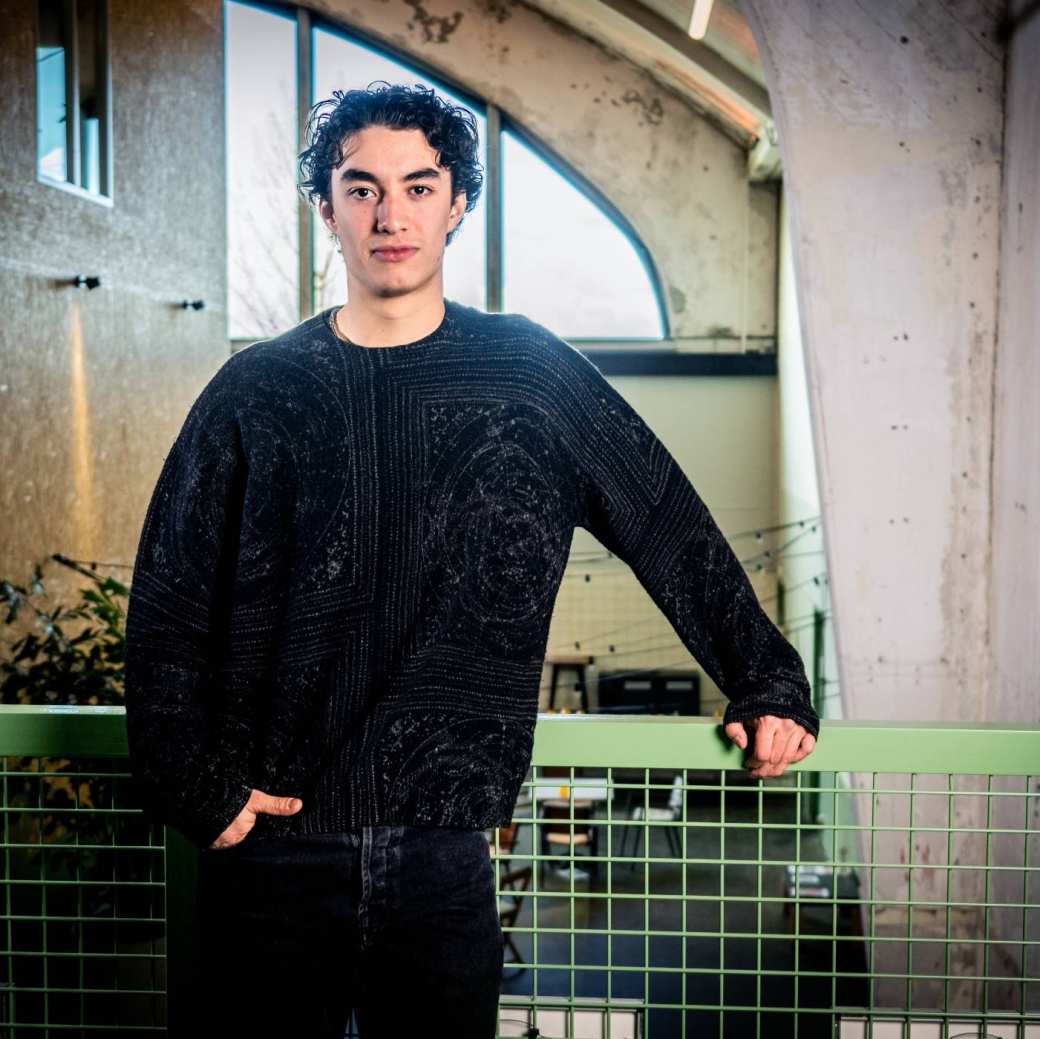Student Mechanical Engineering grows potatoes with space technology
Paulino studies Mechanical Engineering at HAN and founded the company Gravity Gardens. He combines plant science with engineering and space technology to grow vegetables vertically. In what way?

Paulino Valdes was born in Mexico. He travelled the world and lived in the United States and China, among other places. Attracted by our country's leading position in agriculture, Paulino will move to the Netherlands in 2021. He will study Mechanical Engineering at the HAN University of Applied Sciences and set up the company Gravity Gardens. "We combine new space technology with engineering and plant science to create groundbreaking solutions," he says.
Taking agriculture to the next level
Paulino focuses on agricultural innovation because he wants to take the agricultural sector to the next level: "This field has been around for 12,000 years, but has not developed much more recently. I set to work on an agricultural innovation that I believe can be successful."
Vertical agriculture
Gravity Gardens has developed a new system for vertical farming. Only a few crops, such as lettuce and leafy vegetables, are suitable for vertical farming. This could be different according to Paulino. "Even for crops, which are normally not suitable for vertical farming, such as potatoes, our system works."
Vertical farming, for example, takes up less land because vegetables are grown in several floors one above the other. "With this system, we want to drastically address energy consumption and efficiency in agriculture," the young entrepreneur enthusiastically explains. "Achieve more with less."

Making a kilo of potatoes profitable
Gravity Gardens' aim is to make all vegetables suitable for vertical farming, making it financially feasible as well as scalable. "Growing a kilo of potatoes profitably in a vertical system is now virtually impossible. Our innovation aims to change that and unlock the potential of vertical farming for all crops."
Tests at the European Space Agency
The Gravity Gardens system was presented on a small scale during INNOVATE Experience on 18 October 2024 in Arnhem. It is a system designed for testing at the European Space Agency (ESA).
Paulino: "ESA is the only party that can potentially carry out this kind of test. They are currently assessing whether our prototype works in their test environment. But we didn't want to wait for the results, so we have also already developed our own test system at Connectr in Arnhem."

Cooperation with the HAN University
Paulino is studying Mechanical Engineering at the HAN University and during his studies he is given the space to also get involved with his business. Gravity Gardens' team has now been expanded to include a group of students who are collaborating on this innovative development. The student/entrepreneur is very happy with that support.
I told lecturers at HAN about my challenging idea. I made a plan and presented it. They were enthusiastic and helped me find workspace and on technology development"
Selling mangoes as a child
As a child, Paulino sold avocados and mangoes in Mexico, inspired by his parents, who had their own business. "So entrepreneurship is in our blood," he says. "Combining my business with my studies is not easy. Working on assignments, exams, talks with investors, supporting companies, managing the team and planning tests; there is an awful lot to do. But if you organise everything well, it is feasible."
Dedicated team
Gravity Gardens works with a team of 20 people. Co-founder Robin Le Vigouroux helps in the field of plant science. Three others, including Juan Andrés, have also been there from the start. "They are creative, work hard and were the first, who trusted me with this crazy adventure," Paulino says with a smile.
The team also consists of 16 engineers in training: almost all of them HAN students. "They are great, motivated and willing to put in extra hours. We bring together electrical engineers, embedded systems specialists, mechanical engineers and plant science experts. It really is a fantastic multidisciplinary team."
Making the world green again
Paulino's dream is to contribute to a greener world with his technology: "If our company succeeds, it means we can grow vegetables vertically. We have already made huge strides: we believe that within a few years we will be able to grow certain types of potatoes vertically. This would completely transform the agriculture industry."
Source: TechGelderland
Photography: Linder Verweij

